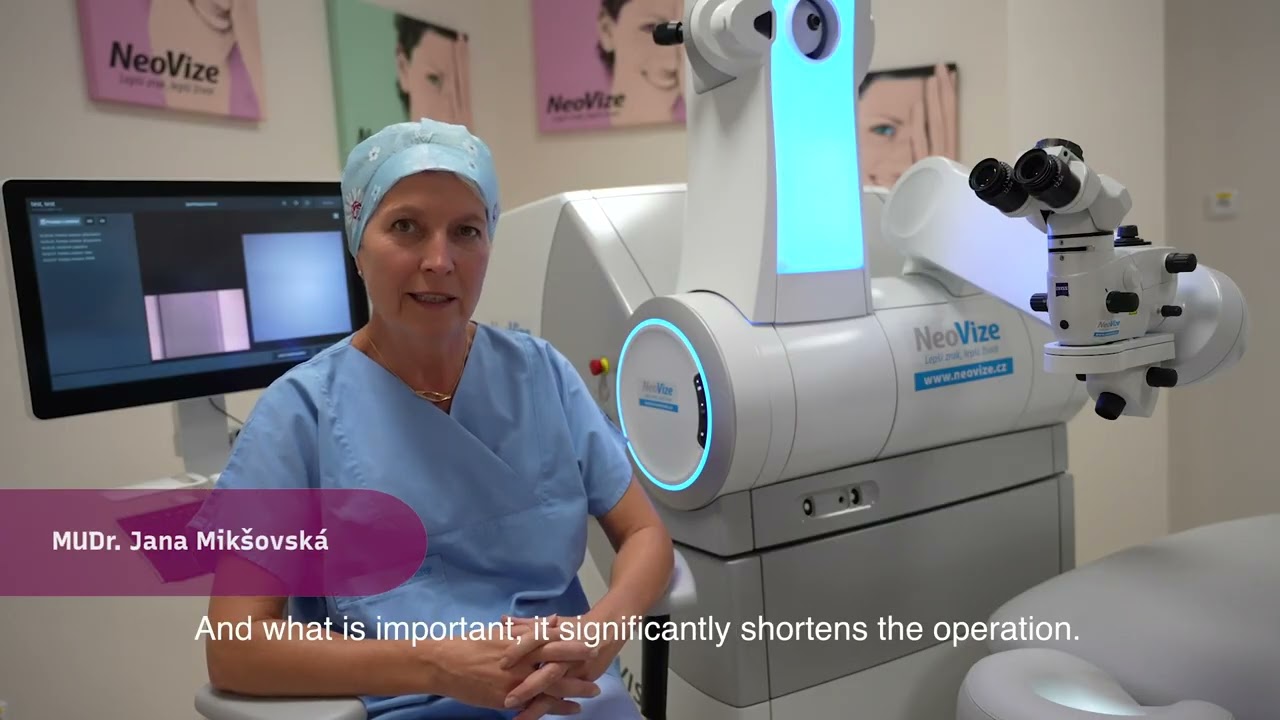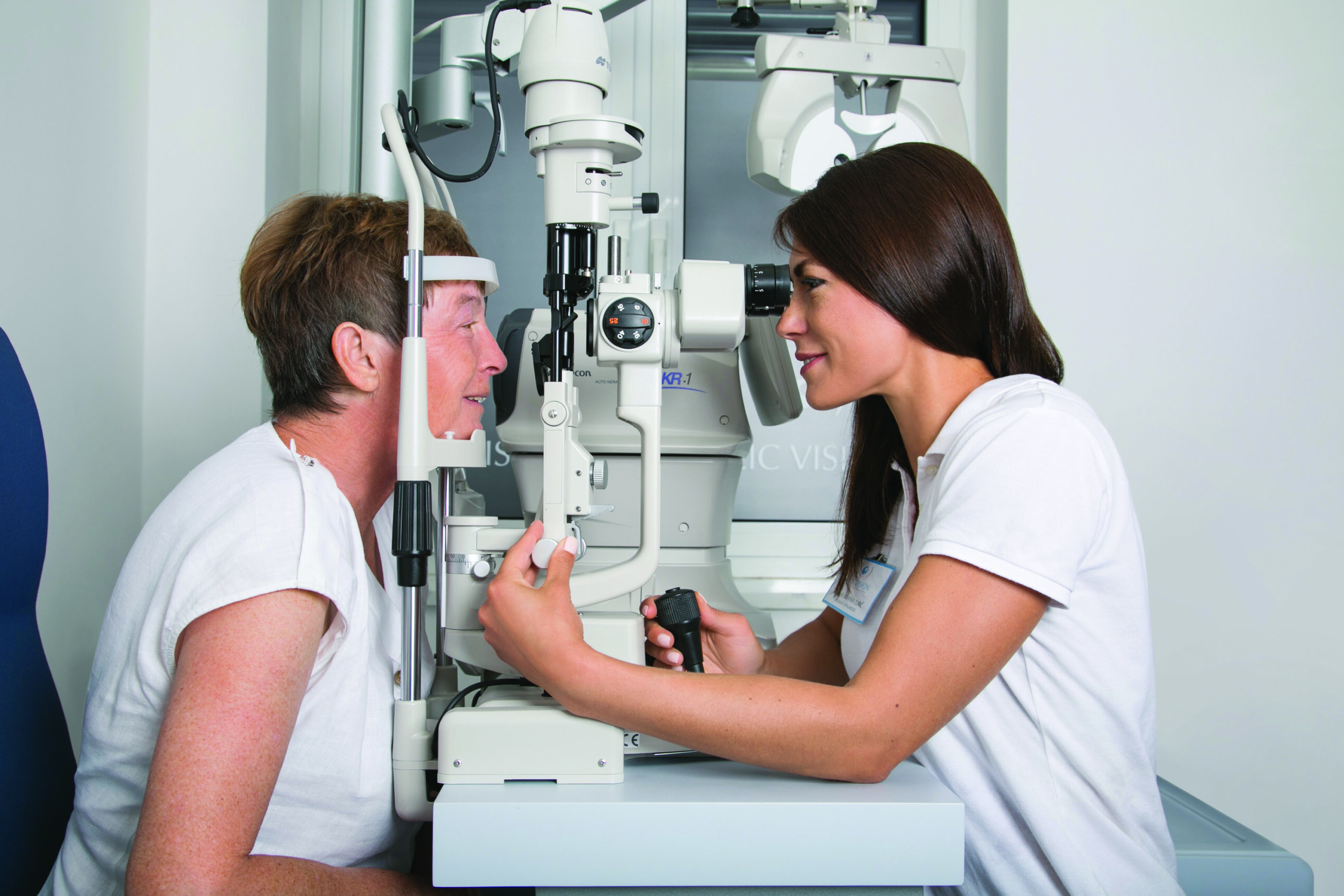In today’s healthcare landscape, Finding the Best Clinics for Laser Eye Surgery in Europe is essential for both practitioners and patients seeking optimal outcomes. As advancements in technology continue to enhance the efficacy of procedures, understanding what distinguishes the Top Laser Eye Surgery Clinics in Europe becomes increasingly important. This comprehensive guide aims to equip healthcare professionals with vital knowledge on the Best Laser Eye Surgery Options in Europe, from identifying the key criteria for selecting a clinic to exploring Top-rated laser eye surgery clinics in Europe. By delving into factors such as affordability and quality, this post seeks to simplify the process of Choosing a Laser Eye Surgery Clinic in Europe, ensuring that practitioners can confidently recommend the Best laser vision correction centers in Europe to their patients. Whether searching for Affordable laser eye surgery clinics in Europe or Best laser eye surgery clinics in Europe, this guide promises to provide valuable insights and recommendations for achieving the best possible patient outcomes.
Understanding Laser Eye Surgery: What to Know Before Choosing a Clinic
Laser eye surgery, often referred to as refractive surgery, is a popular choice for individuals looking to improve their vision. However, before selecting a clinic, it is crucial for healthcare professionals to understand the essential aspects of this procedure. The significance of finding the best clinics for laser eye surgery in Europe cannot be overstated, given the potential impact on patients’ quality of life.
Key Points to Consider
- Types of Laser Eye Surgery:
- LASIK (Laser-Assisted In Situ Keratomileusis): The most commonly performed laser eye surgery.
- PRK (Photorefractive Keratectomy): Suitable for patients with thinner corneas.
- SMILE (Small Incision Lenticule Extraction): A less invasive procedure gaining popularity.
- Safety and Effectiveness:
- Review the clinic’s safety records and complication rates.
- Understand the effectiveness of procedures offered, including patient satisfaction statistics.
- Technology and Equipment:
- Evaluate whether the clinic uses advanced laser technology (like Wavefront technology).
- The presence of state-of-the-art equipment can significantly influence the outcome.
- Surgeon’s Qualifications:
- Research the credentials of the surgeons, including board certifications and experience.
- Look into their specialization in laser eye surgery and the number of procedures performed.
- Patient-Centric Approach:
- A good clinic will prioritize patient education and consultation.
- Consider clinics that provide a comprehensive pre-operative evaluation and personalized treatment plans.
Selecting the Right Clinic
When it comes to choosing a laser eye surgery clinic in Europe, potential patients are advised to:
- Check Reviews and Testimonials: Investigate patient experiences through online reviews and testimonials.
- Inquire About Aftercare Services: Post-operative care is crucial for successful healing and vision outcomes.
- Seek Second Opinions: Getting different perspectives can help in making an informed decision.
Additional Considerations
Before proceeding with surgery, healthcare professionals should communicate with patients about realistic expectations and potential risks involved. They should also familiarize themselves with the latest trends and research in laser eye surgery to provide knowledgeable guidance.
| Factors | Considerations |
|---|---|
| Types of Procedures | LASIK, PRK, SMILE |
| Safety Records | Look for statistical data on complications and successful outcomes |
| Technology | Advanced lasers and cutting-edge techniques |
| Surgeon’s Credentials | Board certification, experience, specialization |
| Post-operative Care | Comprehensive aftercare follow-up practices |
By understanding these vital aspects, healthcare professionals can assist their patients in finding the best laser eye surgery options in Europe, ensuring optimal choices for improved vision and overall health.

Criteria for Selecting a Top Laser Eye Surgery Clinic in Europe
When it comes to Finding the Best Clinics for Laser Eye Surgery in Europe, healthcare professionals need to diligently evaluate various criteria to ensure the highest standards of care and successful outcomes for their patients. Selecting a top-rated laser eye surgery clinic in Europe requires careful consideration of several essential factors.
Key Criteria to Consider:
- Accreditation and Certification
- Ensure the clinic is accredited by recognized medical bodies such as the International Joint Commission (JCI) or similar organizations. Accreditation ensures compliance with international healthcare standards.
- Surgeons’ Qualifications
- Examine the qualifications and expertise of the surgeons. Look for board-certified ophthalmologists with specific training in laser eye surgery.
- Consider their experience in performing the procedure, including the number of surgeries conducted and their success rates.
- Technology and Equipment
- Verify that the clinic utilizes advanced laser technology, such as femtosecond lasers and Wavefront technology.
- Equipment should be regularly maintained and up-to-date to ensure patient safety and optimal results.
- Patient Reviews and Testimonials
- Research online reviews and testimonials from previous patients. This provides insight into their experiences and satisfaction levels.
- Look for clinics with a high percentage of satisfied patients who have achieved their desired visual outcomes.
- Comprehensive Pre-Operative Assessments
- A reputable clinic offers thorough pre-operative assessments to determine the suitability of patients for surgery. This includes detailed eye examinations and consultations.
Evaluation Table:
| Criterion | Importance |
|---|---|
| Accreditation | Guarantees adherence to international standards |
| Surgeon’s Qualifications | Essential for ensuring skill and safety |
| Technology and Equipment | Impacts precision and potential results |
| Patient Reviews | Provides real-world outcomes and satisfaction indicators |
| Pre-Operative Assessments | Identifies patient suitability and potential complications |
By carefully evaluating these criteria, healthcare professionals can facilitate their patients in choosing a laser eye surgery clinic in Europe that aligns with high excellence standards. Whether seeking affordable eye surgery clinics in Europe or top-rated eye surgery centers, understanding these factors ensures informed decision-making and optimal results for patients.
Overview of Top Laser Eye Surgery Clinics in Europe
When seeking top-rated laser eye surgery clinics in Europe, it’s crucial to explore several leading facilities renowned for their state-of-the-art technologies and expert medical teams. Patients can find various options that offer high-quality care, comprehensive assessments, and superior patient outcomes. Here is a selection of some highly regarded clinics:
1. Moorfields Eye Hospital (London, UK)
- Specialties: LASIK, SMILE, and cataract surgery.
- Notable Features: Founded in 1805, Moorfields is one of the oldest and most distinguished eye hospitals globally, boasting advanced technology and a robust research wing.
2. Clinique de la Vision (Paris, France)
- Specialties: Custom LASIK and lens replacement.
- Notable Features: This clinic emphasizes personalized treatment plans, with a team of experienced ophthalmologists committed to patient safety and satisfaction.
3. Aesthetic Eye Clinic (Berlin, Germany)
- Specialties: Wavefront LASIK and femtosecond laser treatments.
- Notable Features: Renowned for its minimally invasive techniques and excellent international patient care services, Aesthetic Eye Clinic is a popular destination for many travelers seeking eye treatment.
4. Eye Clinic (Barcelona, Spain)
- Specialties: Refractive surgery and keratoconus treatments.
- Notable Features: This clinic combines cutting-edge equipment with holistic treatment approaches, ensuring thorough patient examinations and follow-up care.
5. Vision Surgery and Eye Clinic (Amsterdam, Netherlands)
- Specialties: LASIK and PRK.
- Notable Features: Vision Surgery emphasizes transparency and patient education, providing detailed consultations to align surgical options with individual needs.
Comparative Table of Top Clinics
| Clinic Name | Location | Key Specialties | Notable Features |
|---|---|---|---|
| Moorfields Eye Hospital | London, UK | LASIK, SMILE | Historic institution, advanced R&D |
| Clinique de la Vision | Paris, France | Custom LASIK | Personalized care, safety focus |
| Aesthetic Eye Clinic | Berlin, Germany | Wavefront LASIK | Minimally invasive options |
| Eye Clinic | Barcelona, Spain | Refractive surgery | Holistic treatment |
| Vision Surgery and Eye Clinic | Amsterdam, Netherlands | LASIK, PRK | Patient education focus |
Exploring the best laser eye surgery clinics in Europe helps individuals make educated decisions about their eye care. These clinics utilize the latest technologies and techniques while providing a friendly atmosphere for patients. Each facility demonstrates a commitment to quality and safety, ensuring optimal surgical outcomes tailored to individual needs.
Evaluating the Best Laser Eye Surgery Options in Europe
When it comes to finding the best laser eye surgery options in Europe, understanding the different types of procedures and their respective clinics is equally crucial for healthcare professionals as well as for patients. Europe boasts a range of advanced laser eye surgery technologies and methodologies, each with unique benefits and considerations.
Key Laser Eye Surgery Options
- LASIK (Laser-Assisted In Situ Keratomileusis)
- This is one of the most common laser procedures, ideal for patients with moderate to high nearsightedness or farsightedness.
- Pros: Quick recovery time, minimal discomfort.
- Cons: Not suitable for individuals with certain eye conditions, potential complications in some cases.
- PRK (Photorefractive Keratectomy)
- Often recommended for patients who have thinner corneas.
- Pros: Lower risk of complications related to corneal flaps.
- Cons: Longer recovery period compared to LASIK.
- SMILE (Small Incision Lenticule Extraction)
- A modern flapless procedure, SMILE is suitable for those with myopia.
- Pros: Less invasive, potentially less dry eye post-operation.
- Cons: Limited availability; not yet widely offered in all clinics.
- LASEK (Laser Epithelial Keratomileusis)
- A variation of PRK, LASEK combines the benefits of LASIK and PRK.
- Pros: Preservation of corneal strength.
- Cons: Recovery can take a little longer than LASIK.
| Surgery Type | Ideal For | Recovery Time | Surgical Technique |
|---|---|---|---|
| LASIK | Moderate to high refractive error | 1-2 days | Corneal flap creation |
| PRK | Thinner corneas | 3-5 days | Surface ablation |
| SMILE | Myopic patients | 2-3 days | Flapless technique |
| LASEK | Various refractive errors | 3-7 days | Epithelial layer removal |
Considerations When Evaluating Options
When assessing the best laser eye surgery options in Europe, there are several factors to take into account:
- Technology: Verify that the clinic employs the latest technologies for executing procedures.
- Surgeon Experience: Look for clinics with reputable surgeons having extensive experience in performing laser eye surgeries.
- Patient Reviews: Investigate testimonials or reviews from previous patients to gauge their satisfaction levels.
- Cost Transparency: Ensure clarity regarding the overall costs involved, including pre-operative and post-operative care.
By evaluating these critical aspects, healthcare professionals can better inform their patients about the best laser vision correction centers in Europe. This structured approach promotes not only enhanced patient safety but also increases the likelihood of optimal surgical outcomes.

Important Factors to Consider in Laser Eye Surgery Clinics
When seeking Best Laser Eye Surgery Clinics in Europe, various factors play a crucial role in ensuring a successful outcome. Health professionals must evaluate these important aspects to guide their patients toward the safest and most effective clinics. Below are key considerations to keep in mind:
1. Experience and Qualifications of Surgeons
- Verify Credentials: Ensure that the clinic features board-certified surgeons with specialized training in laser eye surgery. Look at:
- Years of experience
- Success rates
- Active memberships in professional organizations
2. Technology and Techniques Used
- State-of-the-Art Equipment: The clinic should utilize the latest laser technology for precision and safety. Consider the types of procedures offered, such as:
- LASIK
- PRK
- SMILE
- Treatment Customization: Clinics that use advanced diagnostic tools for personalized care often yield better results.
3. Clinical Environment
- Facility Accreditation: Choose clinics accredited by relevant health authorities. This assures adherence to safety standards and best practices.
- Hygiene and Staff Professionalism: Evaluate the overall cleanliness of the facility and the professionalism of the support staff.
4. Patient Feedback and Reviews
- Collect Testimonials: Look for feedback from previous patients, as their experiences can provide insight into the quality of care at the clinic.
- Check Online Ratings: Websites and forums dedicated to patient reviews often highlight both strengths and weaknesses of clinics.
5. Post-Operative Care
- Follow-Up Services: A good clinic will provide comprehensive post-operative care, including follow-up appointments to monitor healing.
Comparison Table of Key Factors
| Factor | Importance | Suggested Action |
|---|---|---|
| Experience and Qualifications | High | Verify surgeons’ credentials |
| Technology and Techniques Used | Medium | Investigate equipment used |
| Clinical Environment | High | Evaluate accreditation and staff |
| Patient Feedback and Reviews | Medium | Research patient testimonials |
| Post-Operative Care | High | Confirm follow-up policies and procedures |
By considering these critical factors, healthcare professionals can guide their patients in Choosing a Laser Eye Surgery Clinic in Europe that is both safe and effective, ultimately leading to successful outcomes in vision correction.
Comparing Top-Rated Laser Eye Surgery Clinics in Europe
When delving into Comparing Top-Rated Laser Eye Surgery Clinics in Europe, healthcare professionals must consider various metrics that define the quality and effectiveness of these clinics. Evaluating clinics based on surgical outcomes, patient satisfaction, technology used, and the experience of the medical staff is crucial to making an informed choice. Here’s a detailed comparison of exemplary clinics across Europe:
| Clinic Name | Country | Expertise Level | Technology Used | Patient Satisfaction | Price Range (Approx.) |
|---|---|---|---|---|---|
| Vision Institute | Germany | High | Custom LASIK, SMILE | 95% | €1,500 – €3,000 |
| Eye Clinic Revolution | UK | Very High | Wavefront LASIK, ICL | 98% | €1,800 – €3,500 |
| Lasik Germany | Germany | High | Femtosecond LASIK | 93% | €1,600 – €2,800 |
| Clinique de la Vue | France | High | Lasik, PRK | 94% | €1,500 – €2,600 |
| MediSight | Netherlands | Very High | Advanced Wavefront LASIK | 96% | €1,800 – €3,000 |
These top-rated laser eye surgery clinics in Europe have been vetted based on the following criteria:
Expertise Level
- Each clinic is staffed by experienced ophthalmologists, often certified by national and international boards.
- Accessibility to advanced treatment options ensures specialists can cater to varying patient needs, from standard LASIK to more complex procedures like ICL and PRK.
Technology Used
- The best laser vision correction centers in Europe leverage cutting-edge technology. Technologies like the Femtosecond laser and Custom Wavefront LASIK improve the precision and safety of procedures, reducing the risk of complications.
Patient Satisfaction
- Clinics prioritize patient care and feedback, maintaining high satisfaction rates. Happy patients often lead to clinic referrals, making this metric a reliable indicator of quality.
Price Range
- While pricing varies widely, affordable laser eye surgery options in Europe can still offer high-quality results. It’s essential to assess whether a clinic’s price reflects the technology and expertise provided.
By applying these evaluation criteria, healthcare professionals can effectively navigate Finding the Best Clinics for Laser Eye Surgery in Europe. This knowledge enables them to recommend the best laser eye surgery clinics in Europe confidently, ensuring positive outcomes for their patients.
Exploring Affordable Laser Eye Surgery Options in Europe
When considering laser eye surgery, finding cost-effective options is essential for many patients. Europe boasts a diverse range of affordable laser eye surgery clinics, enabling individuals to pursue their vision correction needs without breaking the bank. Below are critical insights into navigating the landscape of best laser eye surgery clinics in Europe that offer quality care at competitive prices.
Key Considerations for Affordable Laser Eye Surgery
- Comprehensive Cost Analysis:
- Initial Consultation Fees: Many clinics in Europe offer free initial consultations, allowing for budget-friendly exploration.
- Package Deals: Look for clinics that provide bundled services, which might include pre-operative assessments and post-operative care.
- Quality vs. Cost:
- It is crucial to balance affordability with the quality of care. Always verify the clinic’s accreditation and surgeon qualifications.
- Affordable doesn’t mean compromised quality; many top-rated clinics maintain high standards while offering competitive rates.
- Check for Financial Assistance:
- Some clinics provide financing options or payment plans. This can make laser eye surgery more manageable by spreading the cost over time.
Recommended Affordable Clinics in Europe
| Clinic Name | Location | Average Cost | Special Offers |
|---|---|---|---|
| EyeLaser Clinic | Prague, Czechia | €1,500 – €2,000 | Discount for referrals |
| Vision Eye Institute | Budapest, Hungary | €1,200 – €1,800 | Free consultation |
| London Vision Clinic | London, UK | €2,000 – €2,500 | Package deals available |
| Laser Vision Europe | Vienna, Austria | €1,800 – €2,400 | Monthly payment plans |
| EuroEyes | Hamburg, Germany | €1,800 – €2,100 | Special festive discounts |
Final Thoughts
When choosing a laser eye surgery clinic in Europe, affordability should be coupled with diligent research on the clinic’s reputation and performance. By considering affordable eye surgery clinics in Europe, individuals can ensure that they receive advanced technology and skilled practitioners without exceeding their budget. In doing so, they will be well-equipped to select the best laser eye surgery options in Europe that align with both their financial and health needs.

Insights into Best Laser Vision Correction Centers in Europe
When searching for the best laser vision correction centers in Europe, healthcare professionals must consider various factors. Each center may specialize in different techniques, technologies, and patient care strategies that impact surgical outcomes. Here’s an insightful look into the key attributes of notable centers:
Key Features of Top Laser Vision Correction Centers
| Center Name | Technology Utilized | Specializations | Accreditations | Location |
|---|---|---|---|---|
| Vision Clinic | LASIK, PRK | Myopia, Hyperopia, Astigmatism | ISO 9001, CE Mark | London, UK |
| Smart Vision | Femto-LASIK, SMILE | Advanced Corneal Procedures | International Joint Commission | Berlin, Germany |
| Eye Institute | Custom LASIK, Advanced IOLs | Cataract Surgery | JCI Accreditation | Milan, Italy |
| Clearview Laser | Wavefront LASIK | Refractive Errors | CQC registered | Dublin, Ireland |
| European Eye Clinic | ReLEx SMILE, EPI LASIK | Keratoconus | ISO standard | Amsterdam, Netherlands |
Noteworthy Aspects to Consider
- Technological Advancements: Many top-rated laser vision correction centers in Europe leverage state-of-the-art technologies such as Femto-LASIK and wavefront-guided procedures. Keeping abreast of these technologies ensures that healthcare professionals guide patients towards the best available options.
- Expertise and Experience: It is crucial to evaluate the qualifications and experience of the surgeons and medical staff. Many premier clinics boast seasoned professionals with extensive training in various laser techniques.
- Patient Experience and Follow-up Care: The best clinics prioritize personalized care, ensuring comprehensive patient support before, during, and after surgery. Evaluating patient testimonials can provide insights into overall satisfaction and outcomes.
- Accreditation and Safety Standards: Checking for appropriate certifications, such as the ISO or JCI, can ensure that clinics adhere to high safety and quality standards. This is essential for making informed decisions.
Consideration of Cost
While affordable laser eye surgery clinics in Europe may seem attractive, it is crucial not to compromise on quality for cost. Ensuring the balance between affordability and expertise is vital for the overall success of procedures.
In summary, when assessing the best laser vision correction centers in Europe, a detailed evaluation of technology, expertise, patient care, and accreditation is essential. This meticulous scrutiny helps in making educated decisions that ultimately enhance patient outcomes.
Advice on Choosing a Laser Eye Surgery Clinic for Optimal Results
Selecting the right clinic for laser eye surgery is a pivotal decision impacting a patient’s visual health and overall experience. Professionals in the healthcare industry, including doctors, nurses, and pharmacists, must provide patients with accurate and tailored guidance throughout this important process. Here are key considerations to keep in mind when advising patients on Choosing a Laser Eye Surgery Clinic in Europe:
Research and Reviews
- Patient Testimonials: Encourage patients to explore online reviews and patient testimonials regarding their experiences at various clinics. Clinics with a strong positive reputation often reflect consistent quality of care.
- Professional Recommendations: Networking with other healthcare professionals and seeking their opinions on reputable clinics can provide valuable insights.
Accreditation and Certification
- Regulatory Compliance: Verify that the chosen clinic meets the necessary legal and regulatory standards. For instance, clinics should have credentials from relevant healthcare authorities in Europe.
- Qualified Personnel: Ensure that the surgeons and medical staff have proper certifications and specialized training in laser eye surgery.
Technology and Techniques
- Advanced Equipment: Clinics should utilize the latest technology and techniques. Discuss newer options like femtosecond lasers or wavefront-guided LASIK that enhance precision and outcomes.
- Success Rates: Evaluate and compare clinics based on their documented success rates for various procedures. This data can often be obtained from their websites or patient satisfaction surveys.
Consultation and Follow-Up
- Initial Assessment: During the consultation, assess if the clinic conducts comprehensive pre-operative evaluations to tailor solutions for each patient’s specific needs.
- Post-Operative Care: Evaluate their follow-up procedures. Reputable clinics offer extensive post-operative support and rehabilitation to monitor recovery.
Cost and Financing Options
- Transparent Pricing: Advise patients to inquire about the full pricing structure, including any hidden fees. Assess whether the clinic provides information on insurance coverage or financing options.
- Value vs. Cost: Clarify that the cheapest option may not always be the best. Discuss the balance between cost and the quality of care received, emphasizing that affordable laser eye surgery clinics in Europe can still offer exceptional service.
Remember, the goal is to guide patients toward best laser eye surgery clinics in Europe, ensuring they make informed decisions that align with their needs and expectations. By prioritizing these aspects, patients are more likely to achieve optimal results from their laser eye surgery procedures.
Recommendations for Patients Seeking Laser Eye Surgery in Europe
When patients consider undergoing laser eye surgery in Europe, they should prioritize thorough research and careful selection. The journey to finding the best laser eye surgery clinics in Europe involves a series of steps that can enhance their chances of achieving optimal vision correction. Here are several recommendations to guide patients in this critical decision-making process:
Key Recommendations
- Consultation and Preliminary Assessments:
- Seek a comprehensive pre-operative evaluation, which includes vision tests and discussions about medical history. This will help determine candidacy for procedures like LASIK or PRK.
- Research Clinic Credentials:
- Verify that the clinic has board-certified ophthalmologists with significant experience in laser eye surgeries. Ensure they are members of reputable ophthalmology associations.
- Read Reviews and Testimonials:
- Look for patient reviews and testimonials online. Websites such as Trustpilot and specific health forums can provide insights into patient satisfaction and outcomes from the top-rated laser eye surgery clinics in Europe.
- Visit Multiple Clinics:
- Schedule consultations at various clinics before making a choice. This allows patients to gauge the level of care, the technology available, and the comfort of the facility.
- Evaluate Technology and Methods:
- Different clinics may offer various types of laser systems and methods. Investigate whether they use the latest technology to ensure the safest and most effective treatment solutions.
Table: Comparison of Factors to Consider
| Factor | Importance |
|---|---|
| Doctor’s Experience | Ensures high surgical success and safety rates. |
| Technology Used | Modern equipment can lead to better outcomes. |
| Clinic Accreditation | Confirms adherence to quality standards. |
| Post-Operative Care | Essential for monitoring recovery and managing complications. |
| Transparent Pricing | Helps to find affordable laser eye surgery options in Europe. |
By following these recommendations, patients can significantly enhance their chances of finding the best laser vision correction centers in Europe. It is vital for them to approach this life-changing decision with diligence and careful consideration.

Frequently Asked Questions
What factors should be considered when choosing a laser eye surgery clinic in Europe?
When selecting a clinic for laser eye surgery in Europe, several crucial factors must be evaluated. First, the clinic’s accreditation and certifications are vital to ensure it meets the highest safety and quality standards. Second, the experience and qualifications of the surgeons should be thoroughly examined; a well-experienced surgeon with specialized training in laser procedures is essential for optimal outcomes. Third, patient reviews and testimonials can provide insights into the clinic’s reputation and patient satisfaction. Furthermore, the technology and techniques used in the procedures play a significant role; modern clinics often offer advanced laser systems and personalized treatment plans. Lastly, consider the costs involved and whether the clinic provides transparent pricing and finance options.
What are the common types of laser eye surgery available in European clinics?
European clinics generally offer several types of laser eye surgery, each catering to different eye conditions. The most common include LASIK, which involves reshaping the cornea to correct refractive errors like myopia, hyperopia, and astigmatism, providing quick recovery times. Another prevalent option is PRK (Photorefractive Keratectomy), ideal for patients with thinner corneas, where the outer layer of the cornea is removed before treatment. Additionally, LASEK is similar to PRK but preserves the corneal epithelium. Recent advancements have introduced SMILE (Small Incision Lenticule Extraction), a minimally invasive procedure that corrects vision with fewer complications. Each surgical option has distinct advantages and is tailored based on individual needs, ensuring patients achieve the best possible results.
How can patients prepare for laser eye surgery in Europe?
Preparation for laser eye surgery in Europe involves several important steps to ensure a successful outcome. Firstly, patients should schedule a comprehensive eye examination to assess their suitability for the procedure, which includes evaluating the thickness of the cornea and overall eye health. Following this, they should disclose all medications and health conditions to their eye specialist, as certain medications may need to be paused. Furthermore, patients are typically advised to avoid contact lenses for a period before the examination and the surgery itself, as they can alter the shape of the cornea. Also, establishing a support system for post-operative care is necessary, as patients may require assistance on the day of the surgery and during the initial recovery phase. Lastly, understanding the potential risks and benefits of the procedure through thorough discussions with their surgeon can also help patients feel more prepared.
What is the recovery process like after laser eye surgery?
The recovery process following laser eye surgery can vary based on the type of surgery performed and the individual patient’s healing response. Generally, patients can expect to experience mild discomfort or a burning sensation immediately after the procedure, which typically subsides within hours. Most clinics advise patients to take a day or two off from work to allow their eyes to rest. Vision may fluctuate and improve gradually within the first week, and many patients notice significant improvements shortly after surgery. Follow-up appointments are crucial, as they allow the surgeon to monitor healing and make any necessary adjustments. Patients are generally advised to avoid strenuous activities and protect their eyes from dust and water exposure for a specified period. Additionally, the use of prescribed eye drops is important to prevent infection and aid healing. Overall, adherence to post-operative care instructions greatly contributes to a smooth recovery.



